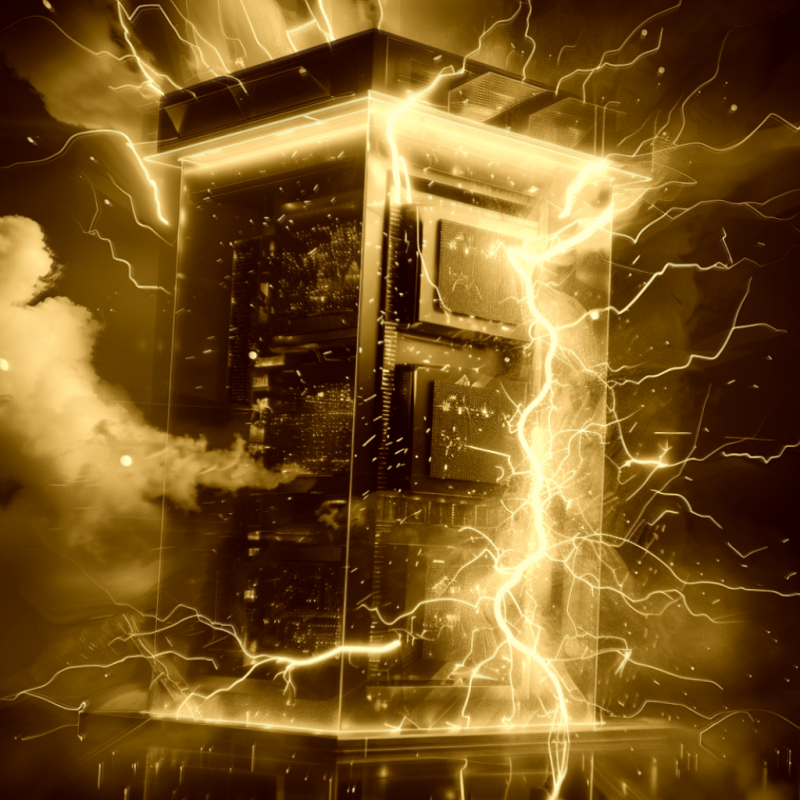
Crypto Wallets And Digital E-Wallets: What You Need To Know
Page 2
What Are Crypto Wallets?
Now that you have a better understanding of what are digital e-wallets, let’s find out more about crypto wallets. Like the digital e-wallets, they are also digital tools but unlike e-wallets, they don’t hold fiat currency (e.g. USD, EUR, GBP, etc).
As its name suggests, crypto wallets store and manage cryptocurrencies such as Bitcoin, Ethereum, or stablecoins. Deep inside the software are the private and public keys that users utilize to access and transfer digital assets.
When you use a crypto wallet, it is as if you are holding a set of digital keys that open your virtual bank vault that resides on the blockchain. However, you must understand an extremely important concept with regards to ownership of digital assets like cryptocurrencies. You actually do not own the digital assets that you stored in a crypto wallet that is provided for you by a cryptocurrency exchange. We will elaborate more on this important matter below.
This is the reason why cryptocurrency users always remind each other of the expression: “Not your keys, not your coins”. Henceforth, it is crucial for you to understand the differences between hot and cold crypto wallets.
Hot Crypto Wallets
The first thing you must know about hot crypto wallets is that they are always connected to the Internet. This feature makes them highly accessible but at the cost of being more susceptible to cyber attacks. Nonetheless, they offer a much needed convenience to cryptocurrency users as the hot wallets are easy to use for everyday transactions and enables quick access to funds.
Examples of popular hot wallets include software wallets like MetaMask, Trust Wallet, and exchanges’ built-in wallets. Hot wallets are ideal for small to medium crypto holdings and for users who actively trade or use cryptocurrencies frequently. Normally, people only recommend to store funds on hot wallets that you intend to use regularly, just like what you would typically do with your physical wallet or debit card. If two-factor authentication (2FA) is available, you should activate it for your hot crypto wallet for better security.

What You Need To Know About Different Types Of Hot Crypto Wallets
Non-custodial / self-custody crypto wallet is a type of hot wallet. As its name suggests, only the owner have full access and control over his secret recovery phrase and private keys. You must keep a backup copy of your secret recovery phrase or private keys as it is the sole method to access your funds stored on the blockchain. As you travel down the crypto road, you would almost certainly meet other crypto users with stories of how they have lost their secret recovery phrase with absolutely no way to retrieve their cryptos.
On the other hand, we have custodial wallets, which you will commonly find on cryptocurrency exchanges. With these wallets, you do not get a secret recovery phrase and you do not own the private keys. This means you may lose access to your money stored on the exchanges’ wallets without any warning. This is akin to how your bank can suspend, freeze or even terminate your account for whatever reasons they or the government deem are legal.
So normally, people only send cryptocurrencies to the exchanges when they are preparing to sell them. They never store funds there for a long time. Furthermore, big exchanges are known to sometimes dictate what their customers can do with the cryptocurrencies held at their platforms. For example, they may suspend withdrawals for a period of time or perhaps demand that you first convert your cryptocurrencies to stablecoins before they allow you to make a withdrawal to your bank account.
Exodus Self Custody / Non-Custodial Hot Crypto Wallet
One of my favorite self-custody / non-custodial crypto wallets is Exodus. I personally find it to be a beginner-friendly and reliable crypto wallet app to keep track of my portfolio. If you want to give it a try, you can start using Exodus now by just downloading it into your desktop, smartphone or tablet. If you use the wallet on multiple devices, your portfolio data should sync automatically.
The company behind the wallet – Exodus Movement (EXOD) was recently approved to list on the NYSE American, the New York Stock Exchange’s sibling market. So, there could be some exciting news coming for Exodus in 2025.
If you use my code below when setting up your Exodus wallet, I will earn a commission from the trading fees. I’d assume you will receive your own code after you setup your wallet, so you too can earn rewards for every referral.
54B1HF
Cold Crypto Wallets
As you may have guessed, we also have cold crypto wallets. As hot wallets are connected to the Internet, so cold crypto wallets operate offline. The offline nature increases security as it makes them less vulnerable to hacking and cyber attacks.
Cold crypto wallets are ideal for long term storage of crypto assets. They typically come in the form of a USB drive and your private keys are safeguarded inside the hardware. Examples of hardware wallets include Ledger Nano and Trezor, which are known to offer robust protection for storing large amounts of cryptocurrency.
While cold wallets lack the convenience of instant access, their security benefits make them a preferred choice for serious investors. Just like with the self-custody / non-custodial hot wallets, you must keep a secured backup of your secret recovery phrase or private keys as it is your sole gateway to access your funds. Without this phrase, you lose all access to your digital assets and cryptocurrencies. You must always bear in mind that hardware failures can happen anytime.
Practical Uses of Hot and Cold Crypto Wallets
- Crypto Investments:
Crypto wallets are ideal tools for cryptocurrency and digital assets investments. You would find a variety of crypto wallets that can cater to the different levels of expertise. At the very least, the beginner friendly wallets usually offer a seamless experience to purchase and swap cryptocurrencies. - Safe Haven Against Economic Uncertainties:
Most people probably do not regard cryptocurrencies as a safe haven because its prices are volatile. Nevertheless, we must bear in mind that political turmoil, social unrest and economic instability could arise very suddenly. During drastic times, banks may be pressured by the government to lock down all monies stored in their accounts. In such a dire situation, your funds stored in cryptocurrencies can be an essential source of emergency funds. - Security Assurance:
Your private keys and secret recovery phrase would allow you full independent access to your digital assets stored on the blockchain. Even if the banks and cryptocurrency exchanges suspend or cease operations, you can be assured that a truly decentralized blockchain like Bitcoin will still be running. This is because it is pretty much impossible for a single authority or government to shut down or block access to a decentralized blockchain. - Inheritance Planning:
The typical tech-resistant attitude that is prevalent with the older people must change. As more countries struggle with political, social and economic problems, we can expect the governments to enforce more laws and regulations that would hinder people’s freedom. These laws may very well include how money can be used or transfered. Therefore, it is wise for benefactors to store a portion of their wealth in cold crypto wallets to ensure their family members can easily claim their inheritances in the future.




